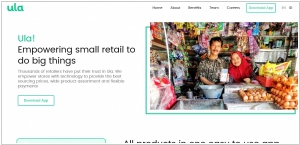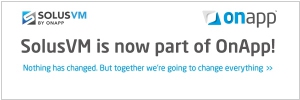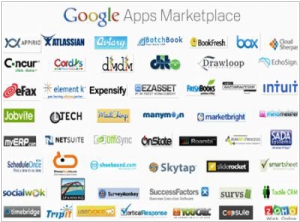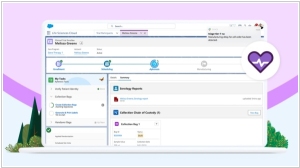Online Marketplaces for business
Updated: July 30, 2023
Online marketplaces for business are digital platforms that bring together buyers and sellers from around the world, creating a virtual marketplace where products and services can be bought and sold. These marketplaces offer businesses a convenient and cost-effective way to reach a wide audience of potential customers without the need for a physical storefront. Businesses can list their products or services on these platforms, providing detailed descriptions and images to attract buyers. On the other hand, buyers can browse through a diverse range of offerings, compare prices, and read reviews to make informed purchasing decisions. Online marketplaces often handle payment processing and logistics, simplifying the transaction process for both parties. With the potential for global reach and increased visibility, businesses can expand their customer base, enhance brand recognition, and boost sales through participation in these dynamic online marketplaces.
See also: Top 10 Online Store Builders
See also: Top 10 Online Store Builders
2021. Wholesale marketplace Abound raises $22.9M

Abound, an online marketplace dedicated to assisting independent retailers in stocking their shelves with products from emerging brands, has announced the successful completion of its first institutional funding round, raising $22.9 million. Initially, Abound began as a community that connected manufacturers' representatives with retailers. However, as the team recognized the limitations of this model and received requests from retailers to purchase directly from brands, they decided to evolve and support this experience. In October 2019, Abound launched its marketplace, starting with 50 brands that received free consulting in exchange for joining the platform.
2020. Ula raises $10.5 million for its wholesale e-commerce marketplace

Ula, an Indonesian startup, has recently secured $10.5 million in a new funding round. The company's objective is to assist small retailers in overcoming the challenges they encounter in supply chain management, inventory control, and working capital. Ula operates a wholesale e-commerce marketplace that enables store owners to efficiently manage their inventory by stocking only the necessary items. Additionally, Ula provides working capital support to these retailers. Operating within the Indonesian market, where traditional retail remains dominant, Ula caters to shop owners, many of which are family-run businesses known for their cost-effective operations. However, these retailers often face difficulties in accessing working capital and sourcing inventories.
2014. Business app marketplace AppDirect acquired real-time dashboard Leftronic

The data visualization startup Leftronic has been acquired by the business app marketplace AppDirect. Leftronic specializes in empowering businesses to construct personalized dashboards that effectively present critical data. Through the incorporation of Leftronic's visualization capabilities, AppDirect can now offer its customers a comprehensive dashboard to monitor the status of their applications. Despite the acquisition, Leftronic will continue to operate as an independent subsidiary, similar to jBilling, another company acquired by AppDirect. Leftronic, which had previously secured $500,000 in funding and was nurtured by Y Combinator, will now join forces with AppDirect, which recently concluded a successful funding round, raising a substantial $35 million.
2014. Cloud marketplace provider OnApp buys VPS virtualization solution SolusVM

The London-based cloud automation company, OnApp, has acquired SolusVM, a virtual private server management system, with the aim of enhancing the demand for capacity within OnApp's federation. OnApp offers a marketplace that encompasses content delivery network (CDN), storage, and compute capacity. SolusVM, on the other hand, is widely used by numerous small service providers to effectively manage their virtual private servers (VPS). By incorporating SolusVM users into its ecosystem, OnApp aims to stimulate demand within its marketplace. The concept revolves around SolusVM users being presented with the option to not only add additional hypervisors but also to "simply purchase the required resources from OnApp suppliers and provide a combination of their own infrastructure and excess infrastructure to their customers."
2012. AWS Marketplace - cloud app market for Amazon's platform
Better than anybody in the world Amazon can build online stores, so the launch of the cloud app store for Amazon Web Services platform - is very logical move. The question may be only one: what's the point of creating software store for AWS, if AWS can host almost any software in the world? The fact is that AWS Marketplace sells not software but software images, specially created for the AWS (so-called AMI = Amazon Machine Images). Each image in addition to the software contains everything it needs to run (operating system, middleware). And you can install such AMI on Amazon's server with just one click. You do not need to configure the software - everything works out-of-the-box. Thus, developers and IT administrators need less and less brains to start using Amazon's cloud platform. You just need to create an account, go to the app store, add to cart needed software (from the operating system to CRM system) and that's all. ***
2010. Google Apps Marketplace - the online app store for Google Apps

As expected, Google has launched the online store Google Apps Marketplace, which allows developers to easily access the Google Apps userbase, which counts 25 million users. More than 50 providers already used this opportunity - now the Google Apps users (directly in the control panel) can add Atlassian Jira bug tracker, DimDim web conferencing, Freshbooks online accounting, Box.net intranet, Manymoon project management, SlideRocket presentations, etc. There you can find even such heavyweights as NetSuite and SuccessFactors. We also note the presence of Zoho apps - Google has once again demonstrated its loyalty towards the competitor. ***


